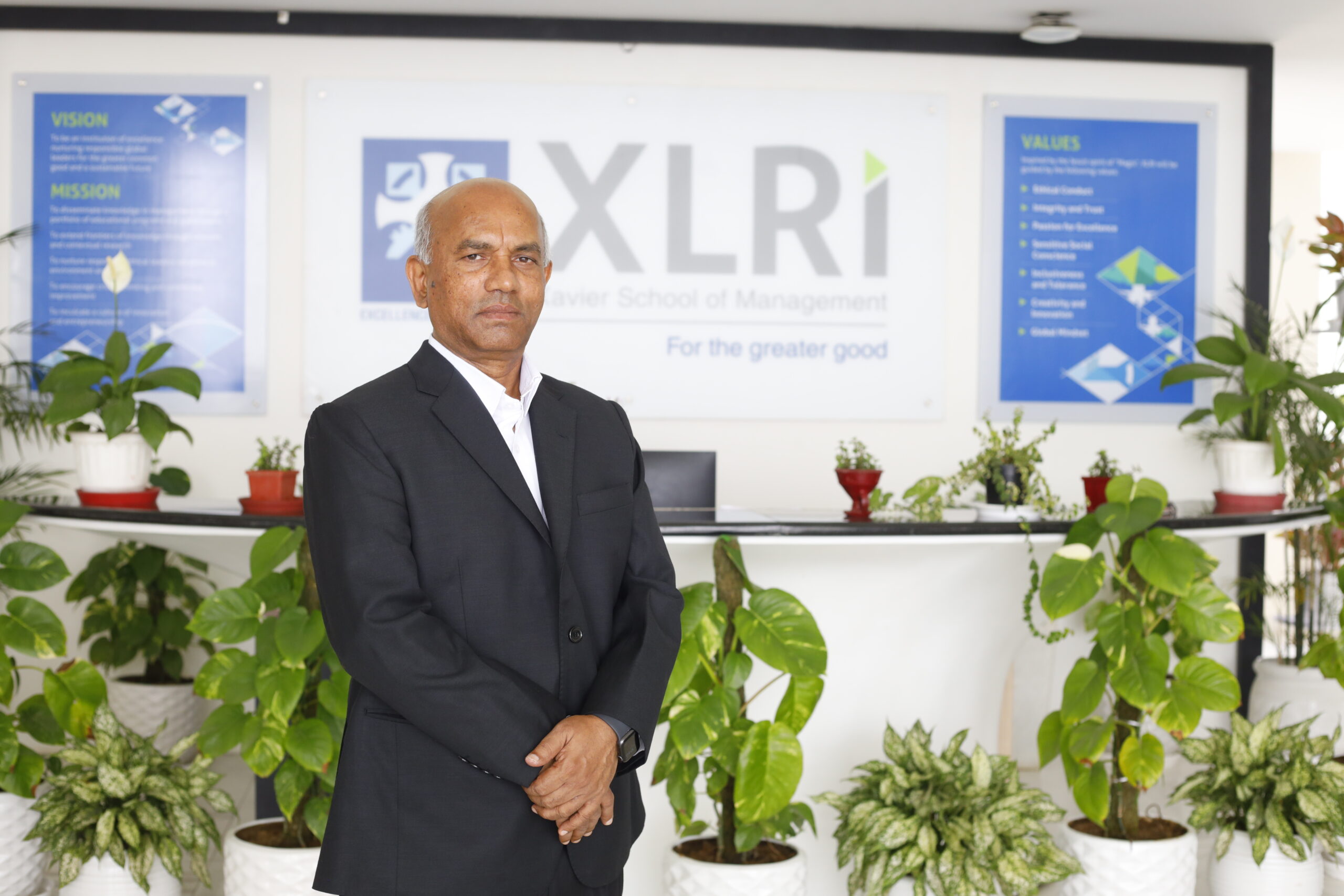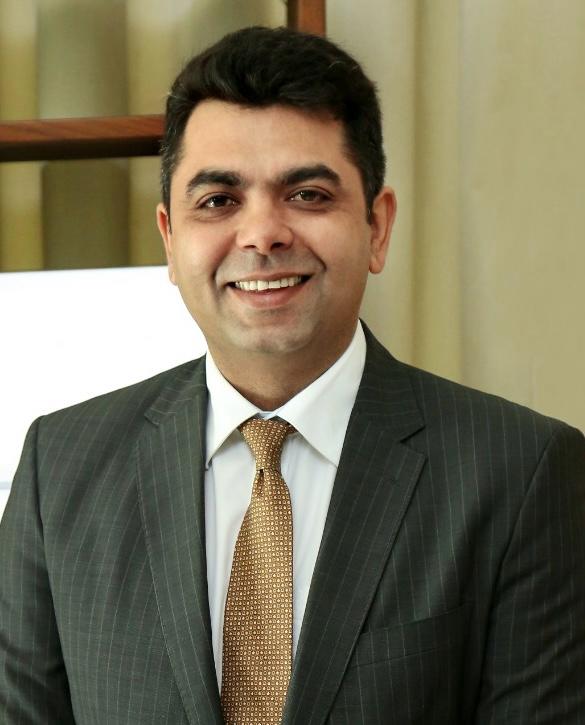As Budget Day approaches, we are seeking interest in pre-budget predictions concerning education policies, the prevailing challenges within the education system, advancements in courses and digital learning.Last Year, The Centre allocated Rs 1.21-lakh crore for the education sector in the Union Budget 2024-25, raising the projected expenditure on school and higher education by around 8.3 per cent compared to 2024-25,
During the budget presentation, the Finance Minister revealed key allocations for the education sector in Delhi. As for the 2025 budget, it’s expected to focus on Education 4.0, with stakeholders hoping for increased allocations for STEM research and subsidies for international students. The Union Budget 2025 is scheduled to be presented on February 1, 2025.
Quote by Mr. Nipun Goenka, Managing Director, GD Goenka Group
‘One of the most pressing expectations from the Union Budget 2025 is a substantial increase in the allocation for the education sector, enabling the government to address long-standing challenges. Reducing or eliminating GST on educational services and digital learning tools is another key demand.
The move would make education more affordable, ensuring quality education is accessible to students from diverse socio-economic backgrounds. The government is also expected to offer tax relief for corporate grants to educational institutions, thereby encouraging collaborations to improve infrastructure and research initiatives.
Additionally, Public-Private Partnerships (PPP) are likely to be prioritized in the upcoming budget to address infrastructure gaps and resource constraints in disadvantaged areas, fostering holistic growth. To achieve the objectives out in the National Education Policy (NEP), the budget is expected to prioritize expanding access to education in underserved regions, enhancing digital infrastructure, and advancing research in educational technology and pedagogy.
Quote by CA Bikram Agarwal, Chief Financial Officer (CFO), Seth Anandram Jaipuria Group of Educational Institutions
The education sector anticipates a major rise in budgetary allocation to reach the ideal of 6% of GDP. There is an expectation for the budget to support the expansion of digital learning platforms and hybrid learning models, to provide flexibility to students and make education more accessible. There is also a strong demand for investments in higher education institutions, particularly in research and development (R&D). Funding should be allowed through foreign investments and foreign currency loans and foreign donations to educational institutions with specific directions.
I would also like to see a reform in an important area. The services of educational institutions are exempt from GST, but whenever they procure something or avail services from a vendor, they are required to pay GST to the service provider, except for some services. The reverse charge mechanism is also applicable on educational institutions under the GST laws, which creates numerous legal requirements on institutions. The government should address this issue
and provide relief to educational institutions for compliance with GST laws.
Quote by Mr. Kunal Vasudeva, Co-founder & Managing Director of the Indian School of Hospitality
The upcoming Union Budget is expected to prioritize the modernization and inclusivity of India’s education sector, aligning with the National Education Policy (NEP) 2020 and India’s aspirations to become a global knowledge hub.
One key focus area could be digital education. The digital divide has widened post-pandemic, especially in rural and underserved areas. The government will likely allocate substantial resources to bridge this gap by improving internet connectivity, providing devices, and investing in digital tools for schools and colleges. Expanding access to platforms like DIKSHA and strengthening the digital learning ecosystem will be critical.
Another area of emphasis could be skill development and vocational training. Programs designed to enhance employability for youth, particularly in Tier-2 and Tier-3 cities, may see increased funding. This aligns with India’s push toward industrial growth, especially in high-demand sectors like IT, hospitality, and green energy.
Additionally, higher education may be boosted through incentives for international collaborations, research funding, and promoting India as a global education destination. Scholarships for economically weaker students and support for private institutions driving excellence might also feature.
The budget will likely focus on accessibility, employability, and global competitiveness, reflecting a roadmap for bridging economic and educational disparities across India.
Quote by Tr. Chaitanya Dev Singh, National President, Roundtable India
With the Union Budget 2025 just around the corner, we anticipate a higher budget allocation towards school infrastructure development, especially at the grassroots level, and an emphasis on education via the Right to Education (RTI) Act.
In the Union Budget 2024, the allocation for Samagra Shiksha Abhiyan (SSA) was ₹37,500 crores, and the Department of School Education was allocated ₹73,008 crores. These investments have already begun to enhance the quality of education by offering students supportive learning environments, access to modern educational tools and an overall push to improve the basic infrastructure.
By further expanding the budget allocation in 2025, we can enhance school infrastructure and physical education, ensuring that all students have access to a quality learning environment. Additionally, we can expedite technology integration and digital education, bridging the digital divide and ensuring that all students, irrespective of their socio-economic background, have equal opportunities to thrive.
A higher budget allocation towards infrastructure and technology adoption will also facilitate the accomplishment of the objectives of NEP 2020 and position India as the Vishwa Guru of the world.
Quote By –Ms. Indu Kansal, Co-Founder, Crack Academy
The education sector has high hopes from the upcoming budget. Increased focus on skill development, research, and innovation is crucial to address future workforce demands. We expect more investments in digital education, rural connectivity, and infrastructure upgrades for tier 2 and 3 cities. Additionally, introducing tax benefits for education expenses would ease the financial burden on students and families. These measures can ensure a more inclusive, equitable, and future-ready education system.
Platforms like EasyShiksha.com make it easier than ever to access quality internships that cater to various fields and interests.

Quote by Mr. Pravesh Dudani, Founder and Chancellor, Medhavi Skills University:
“India’s education landscape stands at a critical juncture. The Budget 2025 should not only bridge existing funding gaps but also propel us into the future by integrating next-generation technologies like AI, IoT, and robotics into mainstream curricula. By substantially increasing public spending on education and fostering robust industry-academia partnerships, we can build a globally competitive, job-ready workforce—one that will drive inclusive growth and bolster India’s standing as a leading knowledge economy. “

Quote by Mr. Kuldip Sarma, Pro-Chancellor and Co-Founder, Medhavi Skills University:
“The Union Budget should address the challenges of educational loans to make education more accessible and affordable for students, especially those from weaker economic backgrounds. Despite the considerable allocation to the education sector, more investment should be considered to meet workforce requirements as per global standards. This also includes funding for STEM (Science, Technology, Engineering, and Mathematics) research, digital learning, and industry-focused skills like AI and IoT. Public-Private Partnerships (PPP) and subsidies for international students can further improve India’s educational ecosystem, with the aim of making it a global education hub in the coming years.”
Important Announcement – EasyShiksha has now started Online Internship Program “Ab India Sikhega Ghar Se”

Sri Charan Lakkaraju, Founder & CEO, Student Tribe
“India’s education ecosystem stands at a critical juncture, with an unprecedented opportunity to empower the nation’s youth for success in a rapidly evolving global economy. With Gen Z comprising 377 million individuals and already influencing $860 billion in consumer spending, the country is poised to experience significant demographic and economic shifts. As the workforce grows and 78 million new job opportunities are projected by 2030, it becomes increasingly important to focus on upskilling students and preparing them for emerging roles. In the next decade, every second Gen Z individual will enter the workforce, with their economic impact expected to exceed $2 trillion in consumer spending. To harness this potential, there is a need for deeper industry-academia collaborations and specialized programs in high-demand fields such as AI, digital technologies, and renewable energy.
We remain optimistic that the forthcoming budget will prioritise investments in higher education and vocational training, aligning educational outcomes with global workforce requirements. The success of the PM Internship Scheme highlights the growing demand for hands-on, real-world experience, and we anticipate further expansion of such opportunities. As Gen Z continues to shape consumer behaviour across industries, it is crucial to ensure that the education system evolves to meet their expectations and future needs. Additionally, the emphasis on greater access to quality education, mental health support within schools, and enhanced digital infrastructure for hybrid learning will be key to creating a more inclusive education ecosystem. By balancing academic rigour with practical skills development, the 2025 budget can foster innovation, nurture talent, and position India’s next generation of leaders for success on the global stage”

Quote By Mr. Vishal Goel, Co- Founder, Crimson Schools
This time, the stakeholders in the school education sector are expecting increased allocations and policy measures to address critical gaps and strengthen foundational learning. While education spending nearly doubled to ₹1.21 lakh crore between 2014-15 and 2024-25, its share as a percentage of GDP remains at 3.5%, far below the 6% goal set by the Kothari Commission. School education spending has grown at a slower pace compared to higher education. Post-COVID, school education spending saw a modest acceleration to 8.4% CAGR. We are anticipating that this trend must be sustained and expanded,
with targeted allocations for improving access to digital learning tools, teacher training, and resources.Financial aid schemes like PM Vidyalaxmi are decisive in enhancing Gross Enrolment Ratios (GER) and reducing dropout rates. Increased funding for these initiatives and simplified compliance processes for schools to access grants and donations could significantly improve educational outcomes.
A major concern for schools is the 18% GST on affiliation and accreditation services, which adds financial strain and limits resources for core functions. A review of this policy will help alleviate costs for schools. Besides, dedicated funds for skill-based learning and micro-credential courses are needed to materialize Education 4.0 by leveraging technologies like AI and robotics. Strengthening public-private partnerships (PPP) to create robust digital infrastructure and bridge the skills gap in school education should also be considered. The Centre’s focus on higher education, which now accounts for 40% of the the education budget must be complemented with increased investments in school education. Spending on research and innovation has surged, with IITs receiving 21.7% of higher education allocations in FY25. Similar attention to schools is necessary to ensure equitable progress across all educational levels.

Quote from Fr. Dr. K.S. Casimir , Director of XLRI Delhi-NCR
“As we anticipate the upcoming budget, our hope is that the government prioritizes strategic investments in human capital, recognizing its pivotal role in driving sustainable and inclusive economic growth. This entails a multi-pronged approach encompassing robust support for skill development initiatives that align with evolving industry demands, fostering a thriving research and innovation ecosystem through enhanced funding and industry-academia partnerships, and ensuring equitable access to quality education at all levels. We believe that a budget focused on empowering our youth with relevant skills, fostering a culture of innovation, and promoting inclusive education will not only enhance employability and drive economic progress but also lay the foundation for a more prosperous and equitable future for India.“

— Vishal Anand, Founder & Pro Chancellor, Shoolini University
“In the upcoming Union Budget, priority can be given to research and intellectual property in the higher education sector. These two categories should be included as part of Corporate CSR fund deployment to accelerate India’s research journey. Education and research capital expenditure could be classified under priority lending, with a focus on 25-year long-term financing for universities as national assets and subsidized lending rates. These initiatives could accelerate private investment in the sector. Allowing education to operate under a for-profit model can enhance capital infusion into the sector and make it globally competitive. Additionally, collateral-free education loans for students could enable higher enrollment numbers in a young nation like ours, which currently struggles with sub-30% levels.”
Praveen K. Pula, President & Chancellor, Woxsen University– President & Chancellor, Woxsen University
“As we approach Budget 2025, the education sector eagerly anticipates a renewed emphasis on higher education after the government’s commendable steps last year. The need of the hour is greater fiscal allocation towards innovation-driven research, skill-based learning, and global partnerships to enhance the competitiveness of Indian universities on a global scale. While primary and secondary education have rightfully received significant focus in the past, it’s imperative now to strengthen higher education to meet the demands of a rapidly evolving global economy. We hope the government will prioritize policies that foster industry-academia collaboration, promote technological adoption, and ensure equitable access to quality higher education for students across all strata.”
Prof. Swapnil Sahoo, Assistant Professor-Strategy and Entrepreneurship, Great Lakes Institute of Management, Gurgaon “As India approaches its upcoming budget, there is a critical opportunity to drive job creation and provide relief to the middle class by fostering a supportive environment for startups and entrepreneurship. The Startup India initiative has already recognized over 1.17 lakh startups, creating more than 15.53 lakh direct jobs by December 2023, and this momentum can be amplified by streamlining regulations, enhancing tax incentives, and improving access to finance. Addressing skill gaps in emerging sectors such as AI, IoT, and green technology through initiatives like the Pradhan Mantri Kaushal Vikas Yojana, which trained over 1.10 crore candidates between 2016 and 2020, is essential to equip the workforce for evolving demands. At the same time, inflation at around 5.5% annually necessitates revisiting tax policies to offer greater deductions on essentials or direct support for startup employees to alleviate middle-class pressures. A comprehensive strategy integrating policy reforms, financial incentives, and skill development will not only strengthen India’s entrepreneurial ecosystem but also address economic challenges faced by the middle class, fostering sustainable growth and inclusive prosperity.”
Dr. Suresh Ramanathan, Dean, Great Lakes Institute of Management, Chennai
“The upcoming Union Budget 2025 presents a significant opportunity for the government to advance its dual objectives of enhancing disposable income and stimulating economic consumption. Measures such as revising personal income tax slabs or increasing exemption limits could provide essential relief to middle-income households, which form the cornerstone of India’s economic framework. Simultaneously, introducing targeted tax incentives for investments in transformative sectors like green energy, skilling initiatives, and AI-driven startups would not only encourage individual engagement in these high-potential areas but also align with the nation’s broader strategic priorities for sustainable growth. While the perennial call for tax simplification persists, this budget must also address the imperative of equitable tax distribution. By implementing policies that enhance compliance through greater transparency and streamlined filing processes, policymakers can expand the tax base while fostering trust among taxpayers.”
Arti Dawar, Deputy CEO, Shiv Nadar School
“Given the NEP’s targeting a Gross Enrolment Ratio (GER) of 50% by 2035 in higher education, including vocational education and the increased focus on Education 4.0, the education sector continues to aim for a 6% GDP allocation to education. We expect the government to increase collaboration with industry on internships, skill-based training, and investments in technology-driven solutions. The introduction of the PM Vidyalakshmi scheme to provide financial support to meritorious students would improve access to education and help achieve GER targets. Additionally, there is a need to establish a fast-track process for patent applications and grants for educational institutions.”
Mr. Abhay G Chebbi, Pro-Chancellor, Alliance University Introduction of incentives for existing universities and educational institutions to create Distinguished Skill Universities in very important. These institutions will address the critical skill gap by equipping the next generation with industry-relevant expertise, thereby driving employment opportunities and enhancing India’s competitiveness in the international arena. A visionary budget that prioritizes these initiatives will serve as a cornerstone for India’s emergence as an economic and educational superpower in the 21st century.
Mr. Anthony Fernandes, Founder – Shaalaa.com. ” As we approach the Union Budget, key focus areas must include steps to empower education and bridge digital gaps. A reduction in GST on education services is essential to make quality learning more affordable and accessible, especially for middle-class families. Additionally, targeted investments in rural internet infrastructure are critical to bringing underserved communities into the digital economy, enabling them to participate in new-age learning and employment opportunities.
To address India’s growing skills gap, the government should provide incentives for vocational training platforms to foster job-ready talent across sectors. Skilling initiatives, particularly in areas like digital literacy, green energy, and logistics, will drive employability and long-term economic growth.
A future-ready economy requires a workforce equipped with both education and skills. By focusing on reducing education costs, expanding connectivity, and supporting skill-building platforms, the Budget can ensure that India’s youth are prepared for emerging opportunities in a rapidly evolving job market. “
By Mr. Ajay Singh, Principal, The Scindia School, Gwalior
As we await the Union Budget for 2025, I believe the education sector is at a pivotal moment. To empower our children to succeed in an increasingly dynamic world, it is essential to prioritize investments in education. I urge the government to allocate a larger share of GDP to education, increase funding for STEM initiatives, enhance digital learning infrastructure and promote skill-based education. By simplifying regulatory processes and encouraging international collaborations, we can create a world-class education system that equips our students to excel on the global stage. Furthermore, fostering a culture of innovation and critical thinking in our schools will be crucial to developing the leaders of tomorrow. I also hope the budget will address the need for equitable access to quality education, ensuring no child is left behind. I look forward to a budget that lays the foundation for a brighter future for our children.


Devyani Jaipuria, Pro Vice-Chairperson DPS Gurgaon,
To make significant budgetary allocations, investing in education is essential to meet the evolving needs of students, educators and the broader society. Education is the cornerstone of national progress and this budget presents a unique opportunity to build a world-class, inclusive system. We must prioritize academic excellence and the holistic development of every child by addressing infrastructure challenges, improving teacher training, and integrating technology. Investing in STEM and skill-oriented programs, such as micro-credentials, is vital to equip students with the expertise needed to succeed in a digital world. By fostering innovation and critical thinking, we can ensure that our students are prepared to thrive in an increasingly globalized economy. The time to act is now—education will shape the future of India

Anish Srikrishna, CEO, TimesPro
“The forthcoming Union Budget presents a crucial opportunity to bolster private sector participation by integrating EdTech into the online and distance learning ecosystem within higher education, paving the way for transformative policies.
A forward-looking approach could allocate funding for emerging disciplines such as Artificial Intelligence (AI), Machine Learning (ML) and other cutting-edge fields. Subsidising course fees for both freshers and professionals would encourage greater participation in lifelong learning and upskilling. Such initiatives, when offered through premiere institutions like IITs and IIMs, would foster an inclusive and competitive workforce. Aligning these measures with national missions like ‘Make in India’ and ‘Skill India’ would reinforce India’s global leadership in innovation and manufacturing. Investments in upskilling across technological and non-technological domains are key to advancing the vision of Viksit Bharat.
Reducing GST on EdTech services to 5% or eliminating it would make education more affordable, broadening access to upskilling programmes and engaging diverse learners.
Recognising and accrediting short-term, stackable micro-credential programmes from EdTech providers for academic credits would bridge skill gaps and boost employability. Similarly, subsidising professional development courses for faculty would raise teaching standards, aligning institutions with global benchmarks. By implementing these measures, the Union Budget can cultivate a skilled, future-ready workforce, driving India’s sustained growth and global leadership.”

































































